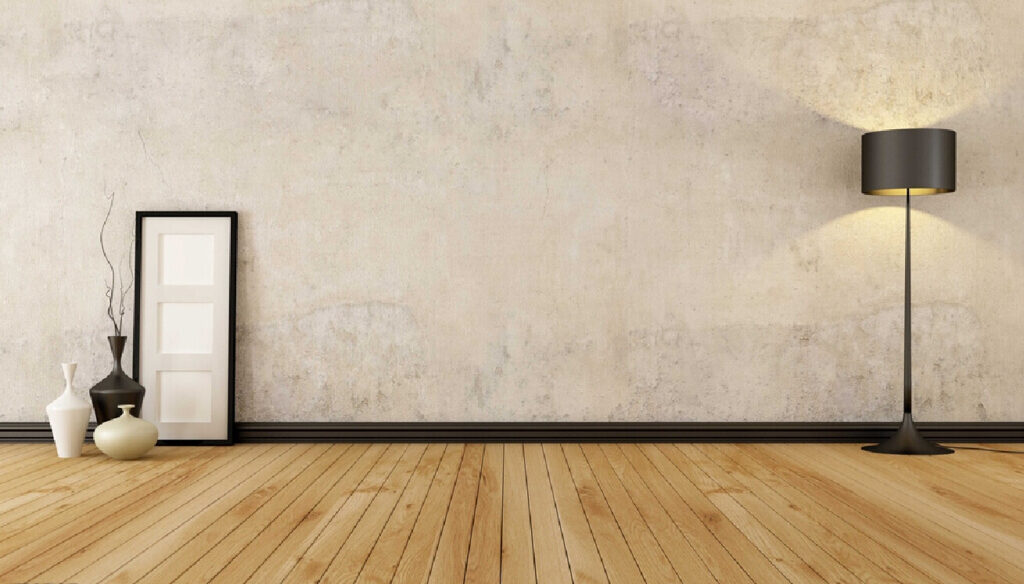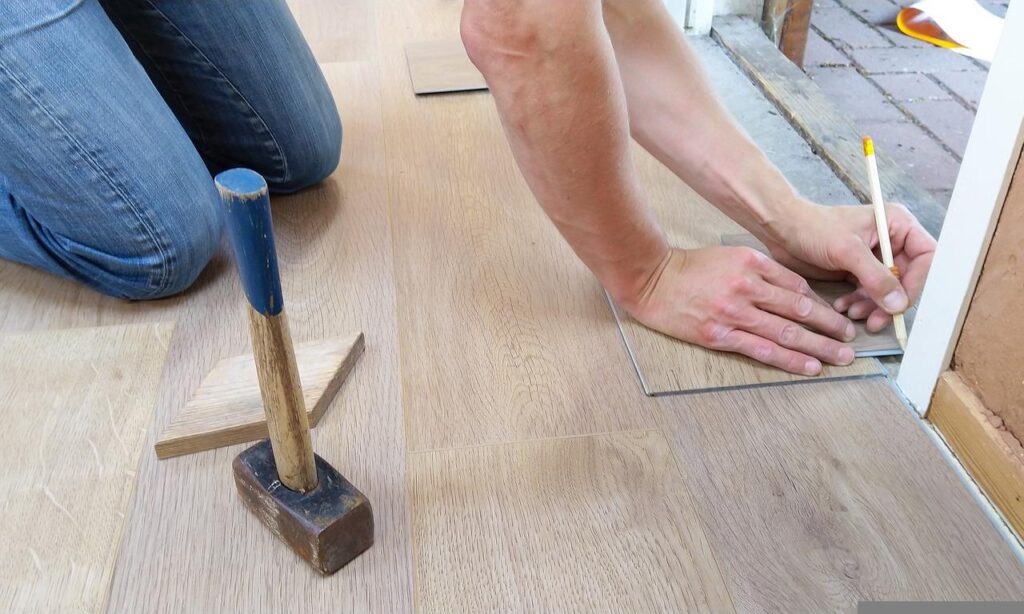Whether you are remodeling your home, updating your office, or preparing to list your property for rent, flooring will be important to consider and should be done so carefully before deciding on a flooring type. We all know how daunting these decisions can be, so here is a user-friendly guide to help you select the right kind of flooring for your space.
First, let’s review some helpful questions you can ask yourself when considering which flooring type to choose for your space.
What is my budget?
One of the most important things to remember about flooring is that in addition to paying for materials, you will likely have to pay for professional installation services. Different flooring types have different costs associated with installation. Also, the subflooring and other materials such as grout for tile should be estimated as well.
Is this flooring for a rental property?
If the space in question is a rental property, there may be more things to consider. To give some examples: perhaps you want to increase the rental value of the space, which may push you to consider more elevated flooring types such as luxury vinyl tiles. Whereas carpet is typically the cheapest flooring option, it is not durable and often needs to be replaced between every tenant. Pete Evering of Utopia Management shares, “Carpet will save money on a single install, but that savings will be eaten up over a ten year period. We recommend our owners opt for more durable affordable options such as laminate or tile. Laminate plank is more popular at moment, but tile still works as an option for lower valued properties.”
Hardwood is not recommended for rental property, as it gets damaged easily and requires extensive maintenance. If you opt for hardwood, plan on buffing and reapplying the topcoat every couple of years. You can also try engineered hardwood flooring. Learn more about what is engineered hardwood flooring and how is it better.
What kinds of messes is this flooring likely to encounter? What cleaning/maintenance processes would this flooring require?
For example, if there will be pets, children, or other infamous mess-makers in the area, be realistic about how much time and energy you would like to devote to keeping your flooring clean. Some floor types require more extensive cleaning processes, while others are more forgiving. For example, hard floors need to be mopped, whereas carpet can be steam cleaned much less often. Wood floors are stunning but can get scratched if dogs with nails run on them, or if heavy furniture is dragged like dining furniture. Carpets stain with spills. Laminate or vinyl flooring and tile are the most durable for heavy traffic and use. Vinyl flooring and tile are water resistant as well. For best vinyl plank flooring brands click here.
Further, flooring maintenance concerns both short and long term maintenance— make sure you are prepared for the possibility that your flooring will need more extensive treatments or repairs in the future, especially if damage occurs.
Does this flooring align with my aesthetic vision for the space?
While aesthetics may seem frivolous to some, they can be very important to others. If your goal is to achieve a certain look– modern, rustic, vintage, etc.– do not underestimate the importance of choosing the right flooring! Flooring can easily make or break a room’s aesthetic harmony. If interior design is not your strong suit, it would not hurt to consult an interior designer before making your flooring decision.
Asking these questions is a great start to finding the flooring that suits your needs. To be more thorough, we have included below a breakdown of the pros and cons of 5 popular flooring types. Please note that while there is a general truth to which flooring types are more or less expensive, all flooring types can have a range of pricing that depends on the material’s specific qualities.
Flooring Type Pros and Cons
Carpet
Pros
- Usually the least expensive option
- Available in all kinds of colors, patterns, textures/pile heights
- Durable (for carpets with greater density)
- Can be less expensive to install– it is still recommended that carpet is installed professionally
- An easy way to add sound insulation to your space
Cons
-
- Prone to damages, especially stains and tears from pets
- Requires frequent cleaning– dirt can quickly build up within the carpet fibers, and the carpet’s quality may suffer if it is not regularly vacuumed or, with more serious messes, professionally shampooed. For those with allergies, it may be best to consider a flooring type that does not hold on to small particles.
- In rental property, budget to replace it between every tenant.
Hardwood
Pros
- Adds value to the space and is very attractive to buyers and renters alike– in fact, the National Wood Flooring Association found in a 2019 research study that approximately two thirds of consumers in the United States want hardwood floors!
- Adds an upscale element to a space
- Easy to clean
- Susceptible to water damage
Cons
- Generally more expensive than other flooring types
- Not the most durable– hardwood can easily become scratched, stained, or damaged due to pets, moisture, and extensive use over time. In order to keep hardwood floors looking good as new, it may be necessary to have them professionally refinished
- Difficult to install– it is highly recommended that installation is done by professionals
Laminate Plank or Laminate Tile
Pros
- More budget-friendly than traditional hardwood flooring
- More durable than traditional hardwood flooring
- Can also imitate other flooring styles such as tile or stone
- Easy to install
- Very popular currently
Cons
- Cannot be refinished– if damage occurs, the laminate flooring will need to be replaced
- While less expensive than wood, still a fairly costly option.
- Must be cleaned with only damp mop, can get water damage.
Luxury Vinyl Plank or Tile
Pros
- Water-resistant, as it is made entirely of synthetic materials
- Easy to install
- Easy to clean
- Wide variety of aesthetic options including wood-look and tile, stone, or patterns.
Cons
- Hard to repair and often requires replacement, like laminate flooring
- Not the least expensive option but less than wood.
Tile
Pros
- Available in so many shapes, patterns, colors, and even textures, with plenty of room to be creative
- Durable and water-resistant
- Easy to clean
Cons
- Generally more expensive than other flooring types with installation
- Can be prone to damage such as cracking and chipping
- Typically requires professional installation
We hope this has helped address some questions and concerns you may have had as you decide on a flooring type for your space, and wish you success and satisfaction with whatever flooring type you choose!


